The demand for heating, ventilation, air conditioning, and refrigeration (HVAC) systems is growing daily across the United States.
HVAC engineers and technicians are in rising demand due to the increasing sophistication of these systems.
This article attempts to explain what a certified HVAC journeyman is and why you should become one.
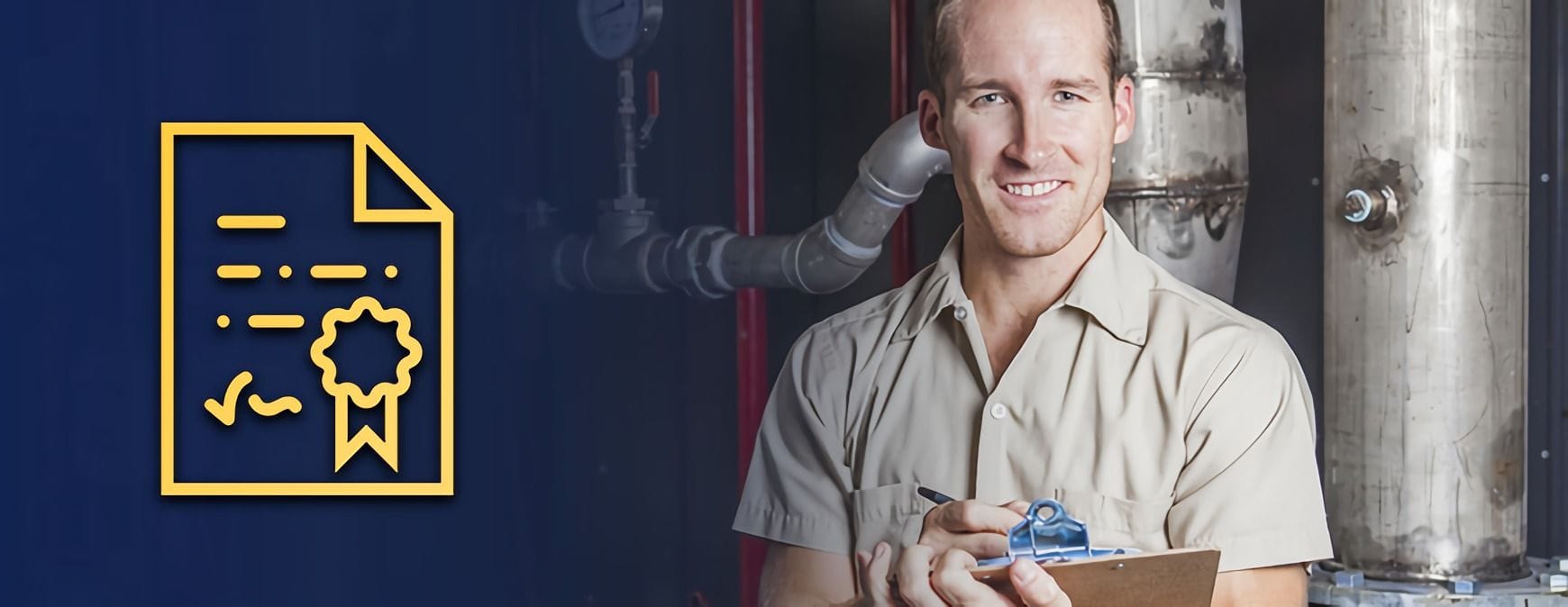
What is an HVAC Journeyman?
An HVAC journeyman holds the required HVAC certification license, as required by their state, to install, repair, and maintain heating, ventilation, air conditioning, and refrigeration (HVAC) systems.
They’re highly trained and qualified in their trade and vital to all industries utilizing heating, cooling, or refrigerating.
Typical duties include analyzing customer needs against building limitations to make recommendations, install new systems, and maintain current systems.
The purpose of an HVAC journeyman is to maximize HVAC systems’ efficiency through design, optimization, and expanding the potential uses of those systems.
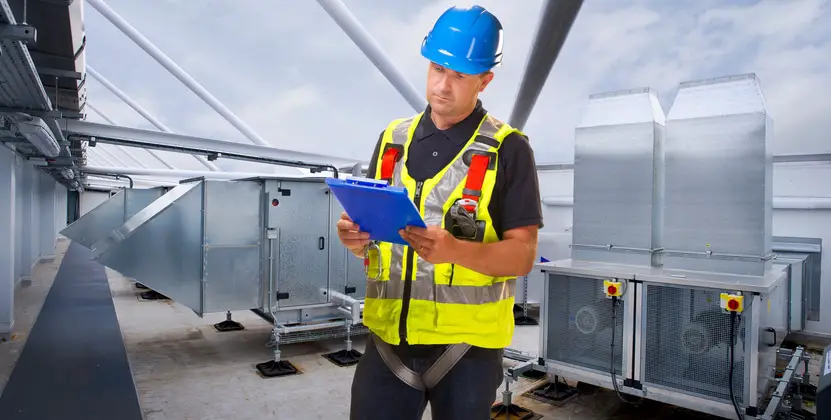
How Do I Become a Licensed HVAC Journeyman?
Obtaining your HVAC certification is easier than you think. It typically requires you to take a course, work in the industry, and pass an exam. You have to be at least 18 years of age.
The typical steps to obtain an HVAC certification are:
- Volunteer or work with HVAC technicians. Having experience with HVAC work will provide an edge in your applications and give you an accurate view of your potential career path.
- Graduate from high school or obtain your GED equivalent depending on your state. Chemistry, Physics, and other physical sciences knowledge is required, so choose your subjects to match.
- Obtain an HVAC certification from an accredited institution—this might also require an apprenticeship. You can qualify to take the certification exam from an accredited institution in two ways. The first option involves academic courses such as a certificate, associate, or bachelor’s degree programs with HVAC system design coursework. This includes refrigeration, energy management, load calculations, industry code standards, ductwork and piping systems, and air quality and conditioning. The second option is to perform 2,000 hours of hands-on HVAC training annually and 144 hours of technical education, typically through an apprenticeship.
- Pass your HVAC exam. The most common certifications are from the North American Technician Excellence (NATE), the Refrigerating Engineers and Technicians Association (RETA) (https://reta.com/), and HVAC Excellence (partnered with the Esco Group).
- Obtain certification by the Environmental Protection Agency. This is federal certification to purchase or dispose of refrigerants
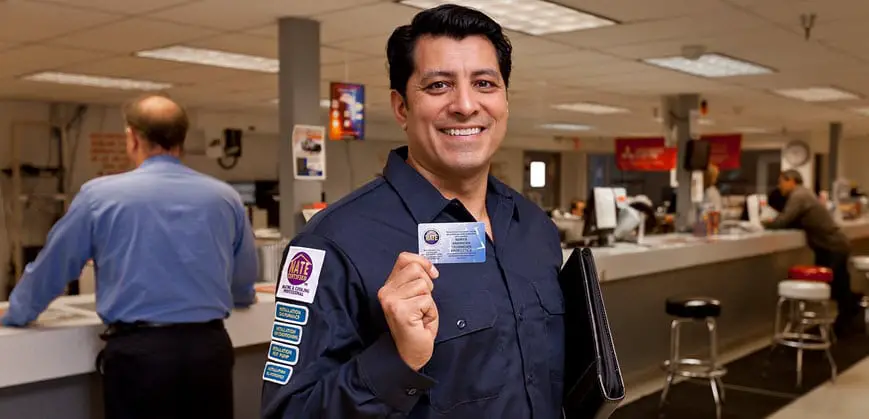
How Long Does it Take to Become an HVAC Journeyman?
The path to becoming an HVAC Journeyman varies, and so does the time it requires. A typical approach to becoming an HVAC technician and the time it usually requires includes:
- Graduate from high school or obtain your GED equivalent depending on your state (four years)
- Obtain an HVAC certification from an accredited institution (six months to two years)
- Complete an apprenticeship (optional, three to five years)
- Pass your HVAC exam to achieve professional certification (timeline varies)
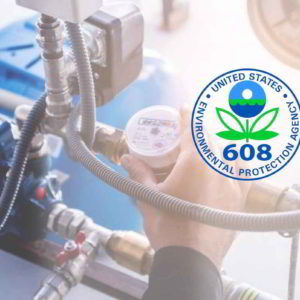
There’s an additional option to start working while you’re getting your experience before accreditation. You can become an HVAC Technician and Work in the Field in an entry-level HVAC technician position without professional certification.
You’ll need your basic EPA 608 certification to work in refrigeration. This will delay your journey by one to three years, but you’ll earn an income during this time.
Pros of Having an HVAC Journeyman License
Obtaining certification as an HVAC Journeyman presents several benefits for you from a personal and professional perspective. Some of the notable benefits include:
Stable Future and Growing Demand
Anyone can see that HVAC systems will be in use for the foreseeable future. There’s no innovative technology threatening the current status quo. This provides peace of mind to current and prospective HVAC journeymen. This employment category is also expecting growth.
The construction industry continues to expand, providing increased workload and income for technicians throughout the year for new installations, repairs, and maintenance.
Higher Compensation
The increased demand for certified HVAC technicians resulted in higher salaries compared to many other occupations.
Location Choices
HVAC systems are used everywhere in the USA and even across the world, which means certified HVAC technicians are in high demand. You’ll have a choice of where you want to work and live as a certified HVAC technician.
Learn While You Get Paid
During your certification journey, you’ll receive on-the-job training for extended periods as a junior employee. You’ll receive a salary during this time, even if it’s only half of what a certified journeyman earns.
Your pay will increase as your skillset and practical experience grows.

Make a Difference to the Environment and to Customers
The HVAC journeyman ensures the efficient operation of systems and reduces any adverse environmental impacts.
Efficient HVAC systems save money and provide optimal comfort to consumers, thereby positively influencing their lives.
Types of HVAC Journeyman Licenses
There are many types of HVAC certifications available to comply with the licensing requirements of your state (see https://www.hvacschool.org/licensing-requirements). Obtaining more certifications will allow you to expand your portfolio of systems you are allowed to work on.
The different types of HVAC certifications are:
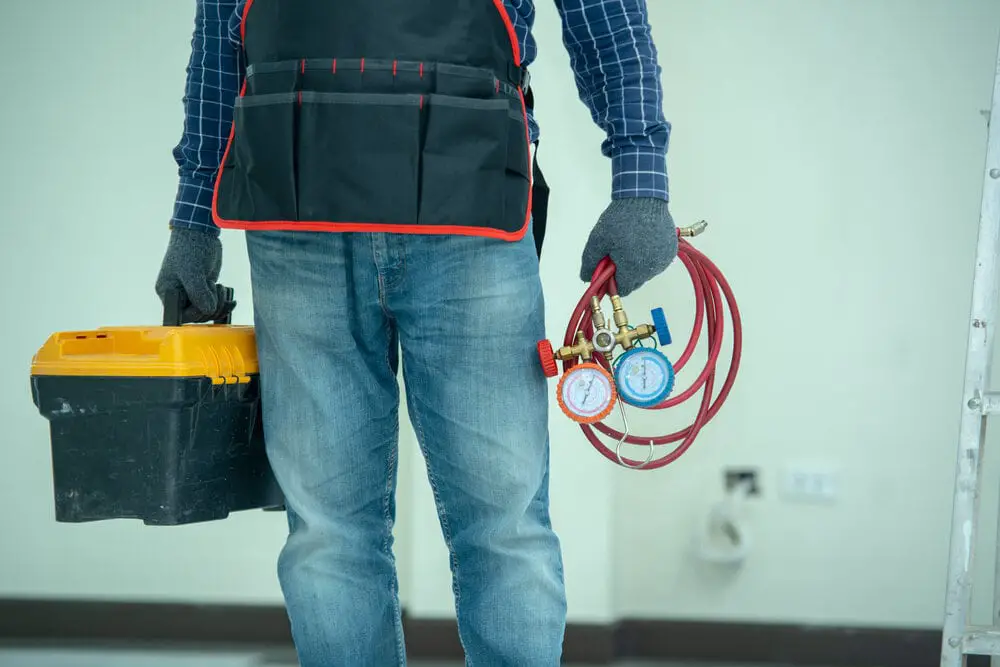
- Section 608 Technician Certification
- EPA Type I Certification – for servicing small appliances
- EPA Type II Certification – for servicing high-pressure systems
- EPA Type III Certification – for servicing low-pressure systems
- Universal EPA Certificate
- North American Technician Excellence (NATE)
Section 608 Technician Certification
This Section 608 Technician Certification is known as the EPA HVAC certification and is mandatory across all the states. This license enables you to handle gases used in HVAC systems in compliance with the Environmental Protection Agency (EPA) requirements.
Under Section 608, there are four types of certifications available.
EPA Type I Certification – for Servicing Small Appliances
You need to pass an exam to obtain the EPA Type I Certification that allows you to service and repair only small refrigerant-containing systems.
EPA Type II Certification – for Servicing High-Pressure Systems
Pass the exam to obtain the EPA Type II Certification that allows you to work with high-pressure systems.
EPA Type III Certification – for Servicing Low-Pressure Systems
The EPA Type III Certification requires you to pass an exam and will allow you to work on low-pressure systems.
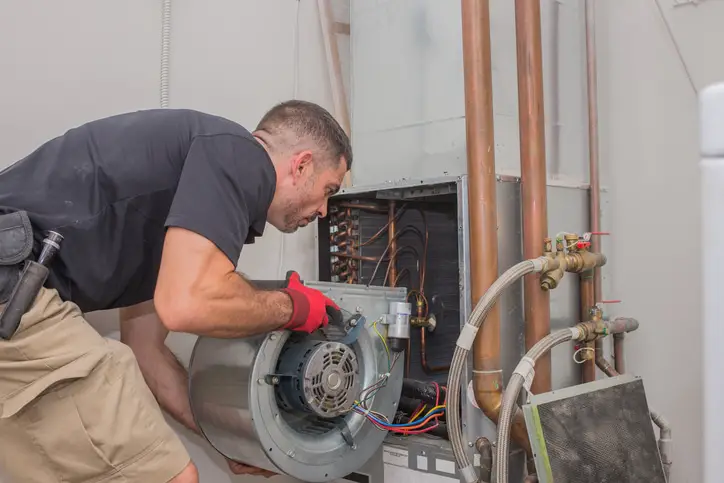
Universal EPA Certificate
Pass the exam covering all information covered in the three certification types discussed above to obtain your Universal EPA Certification. This certification takes a bit longer to obtain, but it does allow you to work on all types of systems.
It also provides you with the best options for finding work in any US state.
North American Technician Excellence (NATE)
NATE offers a practical certification process to validate your knowledge if you’re an uncertified HVAC technician. See https://www.natex.org/site/1/Home for details.
Job Outlook and Salary for an HVAC Journeyman
It’s essential to understand the career prospects and future outlook before choosing a career as an HVAC technician.
The average annual pay for an HVAC journeyman in the USA in April 2021 was $49,481 a year. This salary is higher than the average of a lot of other industries. Salaries vary depending on your level of experience and are influenced by the state and city averages.
The growth in the HVAC systems industry coupled with the booming construction industry resulted in a predicted increase of 13% for the certified HVAC technician job. This is much higher than for other occupations and an incredibly positive outlook.
As a certified HVAC technician, you can open your own business, work for a contractor, or join the education or wholesale industries.
Examples of typical career paths include:
Entry-Level Positions
- HVAC/R Tech
- HVAC/R Maintenance Tech

Mid-Level Positions
- HVAC Refrigeration Technician
- HVAC Maintenance Manager
- HVAC Controls Technician
- HVAC Service Manager
Senior-Level Positions
- Chief Mechanical Engineer
- HVAC Maintenance Director
- HVAC Controls Systems Engineer
- HVAC Service Director
Conclusion
It’s easier to become a certified HVAC technician than you think. The benefits far outweigh the time you need to put in to succeed. You also get paid while you do the practical portion of your training.
The growing demand and bright future outlook for the HVAC technician make this career choice a no-brainer.
